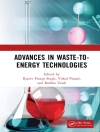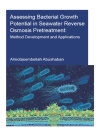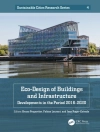Policing and ecological crises – and all the inequalities, discrimination, and violence they entail – are pressing contemporary problems. Ecological degradation, biodiversity loss, and climate change threaten local communities and ecosystems, and, cumulatively, the planet as a whole. Police brutality, wars, paramilitarism, private security operations, and securitization more widely impact people – especially people of colour – and habitats. This edited collection explores their relationship, and investigates the numerous ways in which police, security, and military forces intersect with, reinforce, and facilitate ecological and climate catastrophe. Employing a case study-based approach, the book examines the relationships and entanglements between policing and ecosystems, revealing the intimate connection between political violence and ecological degradation.
Daftar Isi
Chapter 1. Introduction: Securing Ecological Destruction (
b
y Alexander Dunlap and Andrea Brock ).- Part 1: Hydrocarbon Militarization.- Chapter 2. A Postcolonial History of Accumulation by Contamination in the Gulf (
b
y Michael Hennessy Picard & Tina Beigi).- Chapter 3. Beyond Rentier State and Climate Conflict: Clashing Environmental Imaginaries and Ecological Oppression in Iran (
by Maziar Samiee).- Chapter 4. Policing Indigenous Land Defense and Climate Activism: Learnings from the Frontlines of Pipeline Resistance in Canada (
b
y Jen Gobby and Lucy Everett).- Part 2: Enforcing Extraction.- Chapter 5. Global Britain and London’s Mega-mining Corporations: Colonial Ecocide, Extractive Zones, and Frontiers of Martial Mining (
by Daniel Selwyn).- Chapter 6. The Self-Reinforcing Cycle of Ecological Degradation & Repression: Uprooting the Ecological Coast of Policing & Militarization (
by Alexander Dunlap).- Chapter 7. Oil, Arms and Emissions – The Role of the Military in a Changing Climate (
b
y Wendela de
Vries).- Part 3: Policing Ecosystems.- Chapter 8. If the Army Cuts Trees, Why Can’t We? Resource Extraction, Hunting and the Impacts of Militaries on Biodiversity Conservation (
b
y Anwesha Dutta and
Trishant
Simlai).- Chapter 9. Policing the High Speed 2 (HS2) train line – repression and collusion along Europe’s biggest infrastructure project (
by Andrea Brock and Jan Goodey).- Chapter 10. Ecological Terror and Pacification: Counterinsurgency for the Climate Crisis (
by Peter Gelderloos).- Part 4: Looking forward.- Chapter 11. Demilitarize for a Just Transition (
b
y Matthew Burke and Nina L. Smolyar).
Tentang Penulis
Alexander Dunlap is a postdoctoral research fellow at the Centre for Development and the Environment, University of Oslo. His work has critically examined police-military transformations, market-based conservation, wind energy development and extractive projects more generally in both Latin America and Europe. He is the author of two books: Renewing Destruction: Wind Energy Development, Conflict and Resistance in a Latin American Context (2019, Rowman & Littlefield) and The Violent Technologies of Extraction (2020, Palgrave).
Andrea Brock is a lecturer at the Department of International Relations, Centre for Global Political Economy and STEPS Centre at the University of Sussex. Her work examines a wide range of techniques and technologies to manage anti-extractive projects, including criminalisation and co-option of dissent and greenwashing. She is interested in political ecologies of mining, corporate power, and statism.












